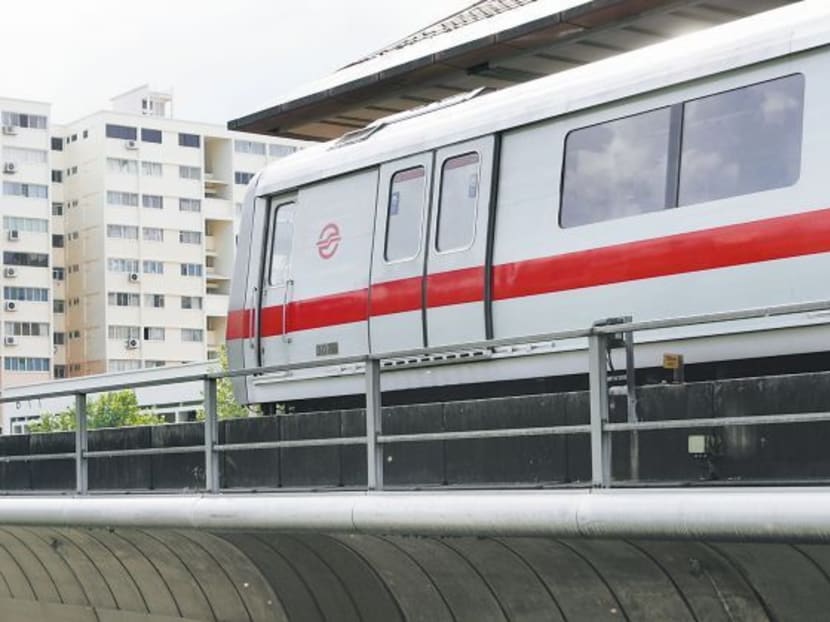Rail transport operators face tougher measures
SINGAPORE — The Government has imposed a tougher regime on rail transport operators, including fines of up to 10 per cent of their annual fare revenue for every rail incident and even setting down the composition of boards.
SINGAPORE — The Government has imposed a tougher regime on rail transport operators, including fines of up to 10 per cent of their annual fare revenue for every rail incident and even setting down the composition of boards.
Under amendments to the Rapid Transit Systems Act passed in Parliament yesterday, the Land Transport Authority (LTA) has the power to compel a public rail transport operator to change personnel on its board of directors.
This power will not be invoked lightly but it will allow LTA to ensure that the boards comprise the appropriate and relevant range of expertise and experience, including engineering background, needed to fulfil their primary role as public rail transport operators, Transport Minister Lui Tuck Yew told the House.
Under a new section enacted in the Act, the LTA may direct a rapid transit system licensee to appoint an individual as an additional director, and the licensee must comply. Nevertheless, the LTA must consider any representations or objections made by the licensee.
Among other things, a licensee must also obtain LTA’s approval to appoint or reappoint an individual as its chief executive officer, director or chairman of its board. The LTA’s consent is also needed for removing its CEO, chairman or any director.
If its approvals were not sought, the LTA has the power to remove or reinstate an individual.
Under the new laws passed yesterday, the maximum financial penalty for rail incidents or regulatory breaches was also raised to 10 per cent of train operators’ annual fare revenue, or S$1 million for every incident, whichever is higher.
The fines were previously capped at S$1 million.
Non-Constituency Members of Parliament (MP) Lina Chiam and Gerald Giam wanted the authorities to go even further.
Mrs Chiam, who pointed out that financial penalties do not hit the operators hard enough, suggested that the LTA be allowed to remove the CEO of an operator if key performance indicators were not met.
Mr Giam proposed that senior management members should be held personally liable for the quality and reliability of MRT services. “Financial penalties are imposed on the company and do not directly impact the people who are in the position to improve service quality and reliability,” he said.
In response, Mr Lui said: “I am less interested in heads rolling. I am more interested in heads fixed on and focused on identifying as well as resolving problems.”
Following major disruptions in December 2011 — which saw a Committee of Inquiry set up in the aftermath — former SMRT CEO Saw Phaik Hwa resigned less than a month later.
Since her resignation, new CEO Desmond Kuek has brought in several new faces to the company’s board, including Hyflux Caprica CEO Yap Kim Wah, who is a registered professional engineer.
In a written reply to Mr Giam, who had asked about the quantum of fines for the public transport operators over the past three years, Mr Lui said SMRT was fined a total of S$2.2 million and S$500,000 for rail incidents in 2011 and 2012, respectively. Last year, it was fined S$360,000. SBS Transit was fined S$400,000 and S$250,000 for incidents in 2012 and last year, respectively.
Some MPs argued that the fines have done little to reduce the number of disruptions or improve the management of such incidents.
But Mr Lui cited statistics that showed the situation has improved.
For example, the number of train delays longer than five minutes has gone down by 20 per cent across the entire MRT network, from 1.49 delays for every 100,000km travelled in 2012 to 1.18 last year.
On the spate of disruptions involving SMRT last month, Mr Lui said: “I was especially perturbed because I know that there actually has been a lot of hard work put in by the team in SMRT as well as the SBS Transit team together with the LTA to improve train reliability — with good progress made in the past two years.”
Nevertheless, Mr Lui said SMRT could have done better in service recovery, especially in communicating with commuters, during the recent disruptions.
He added that as part of its investigations, the LTA will highlight gaps in SMRT’s communication with affected commuters, and work closely with both operators to share learning experiences and improve the management of incidents.
“SMRT’s management has already committed to review its contingency plans on a station-by-station basis, and refine its command and control structure in times of disruption to better support ground staff,” he said.







